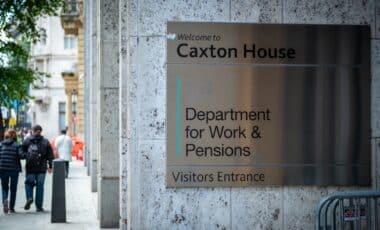The Department for Work and Pensions (DWP) has announced changes to its payment schedule for January 2025, affecting both benefits and pensions. These adjustments have been made to accommodate the bank holidays surrounding New Year’s Day, a period that often adds financial stress to households already managing increased winter expenses. With energy prices on the rise and Christmas leaving many budgets stretched, understanding these changes is vital for those relying on financial support. While the adjustments are designed to ensure no one is left without their expected payments, they highlight the importance of staying informed about key dates to avoid unnecessary disruptions.
What Changes Are Being Made?
The payment dates for benefits and pensions will shift due to the bank holidays on Wednesday, 1 January 2025, and Thursday, 2 January 2025 (in Scotland). The DWP has taken steps to ensure payments are issued earlier to prevent delays. Payments originally scheduled for these dates will instead be deposited on Tuesday, 31 December 2024. This adjustment applies to all affected benefits and pensions, ensuring claimants receive their funds ahead of the holidays.
This update reflects the DWP’s ongoing efforts to accommodate claimants during periods when banks are closed, ensuring no household is left without access to essential funds. With many people carefully managing tight budgets during this time of year, these early payments provide a necessary buffer against financial strain.
Understanding Your Payment Schedule
Benefits and pensions are typically paid on set schedules, with variations depending on the type of support. If a payment date coincides with a weekend or public holiday, the payment is usually made on the last working day beforehand. The DWP has outlined how various benefits are scheduled, ensuring claimants can plan around these dates.
For example, benefits such as Carer’s Allowance, Disability Living Allowance (DLA), and Personal Independence Payment (PIP) are generally paid every four weeks. Others, like Jobseeker’s Allowance (JSA) and Income Support, are distributed every two weeks. Universal Credit, meanwhile, is paid monthly, while Child Benefit offers both weekly and four-weekly options depending on the claimant’s circumstances. State pensions follow a separate structure, with payment days determined by the claimant’s National Insurance (NI) number.
These consistent schedules provide a sense of predictability, but bank holidays like New Year’s Day necessitate temporary changes. The DWP has assured claimants that all adjustments are in place to minimise any inconvenience.
Key Steps for Claimants to Take
While the DWP has worked to make these changes as seamless as possible, claimants are encouraged to stay vigilant and proactive. If you rely on benefits or pensions, it’s essential to check the details of your payment schedule and confirm any adjustments with the DWP if needed.
Actions to Take:
- Review your award notice or online account for specific payment dates.
- Verify that your bank, building society, or credit union account details are up to date.
- Contact the appropriate DWP helpline if your payment does not arrive as expected.
Being prepared can help avoid unnecessary stress, especially during the financial pressures of the New Year period. If issues arise, the DWP’s helplines are available to provide guidance and support.
When to Expect Your Pension Payments
State pensions follow a specific payment cycle, determined by the last two digits of the claimant’s National Insurance (NI) number. Payments are issued on the following days:
- 00 to 19: Monday
- 20 to 39: Tuesday
- 40 to 59: Wednesday
- 60 to 79: Thursday
- 80 to 99: Friday
For those whose payment date falls on a bank holiday, such as 1 January, the funds will be issued earlier. Pensioners in Scotland, where 2 January is also a public holiday, will similarly receive payments ahead of time.









